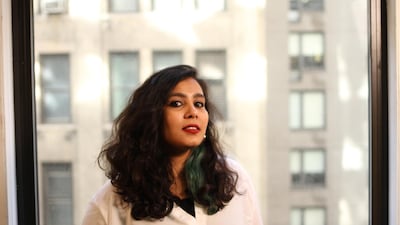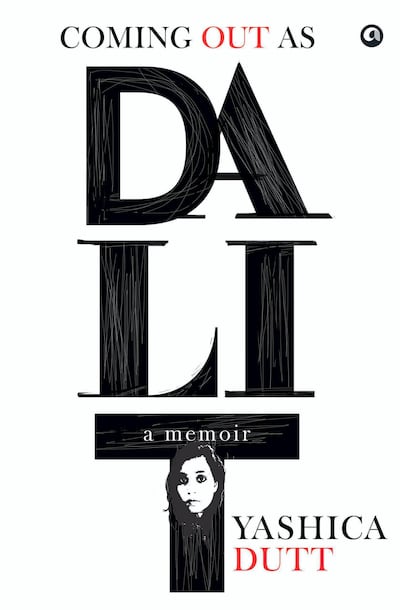In January 2016, the suicide of Rohith Vemula, a PhD scholar and Dalit rights activist, became a much-needed inflection point in India for heated conversations about caste. It forced the country to confront the systemic abuse it heaps on roughly 16 per cent of its citizens, denying them opportunities for education, social mobility and, ultimately, economic advancement.
Dalits, who are often referred to with the dehumanising term “untouchables”, belong to the lowest rung of the Hindu caste hierarchy. Believers in the caste system consider Dalits to be impure and contaminated.
In his suicide note, Vemula wrote: “The value of a man was reduced to his immediate identity and nearest possibility … Never was a man treated as a mind. As a glorious thing made up of stardust. In very field, in studies, in streets, in politics, and in dying and living.”
Vemula's poignant parting words led to an outpouring of anger from Dalit activists, journalists and young people. Thousands of miles away, in New York, it galvanised Yashica Dutt, 33, a fashion and culture writer, into "coming out" as Dalit to a world that had, until then, always known her to be a Brahmin (the top of the caste ladder) girl from Rajasthan.
Three days after Vemula's suicide, Dutt revealed her Dalit identity in a Facebook post that went viral. A Tumblr account documenting the experiences of fellow Dalits soon followed. Reading these stories – so similar in their despair, yet so different in the ways they affected the person living them – made Dutt commit her newfound activism to paper in the form of Coming Out As Dalit: a Memoir.
Coming Out is more than just a memoir chronicling Dutt's own unusual journey. Admissions about the lengths to which her mother went to conceal their lower-caste roots are interspersed with research-based analysis and observations about the insidiousness of the system in India. Early in the book, Dutt calls caste the "invisible arm that turns the gears in nearly every system in our country".
She uses personal details to contextualise her understanding of caste and the social commentary that follows. And so, the book segues from ruminating about the shame she carried within herself as a child long before she even had any understanding of caste, to the history of the system.
Coming Out covers the years of abuse her mother endured at the hands of Dutt's alcoholic father and his family for wanting to give her children an upper-caste education, to the double disadvantage of being a Dalit woman in a casteist and patriarchal society.
Dutt also lays bare the years of mental self-flagellation and never believing she was good enough, as well as the isolation of students from marginalised communities in educational institutions. The book also examines memories of her family's abject poverty, to vegetarianism being used as the "gold standard for caste purity".
"The memoir-journalistic project combination was completely intentional," Dutt tells The National. "My purpose was to make Dalit readers feel a little less isolated. I wanted them to feel seen and heard, and to use it as a handbook to fight back every time they're made to believe that they are inherently untalented or undeserving due to their caste," she says.
Dutt speaks elaborately about "the danger of the single narrative" at various points in the book. So much so, that it is actually the name of the concluding chapter of her memoir.
At this part, she refers to India’s one-dimensional idea of what it means to be Dalit, and its cultural preoccupation with only paying heed to Dalit stories when there is gruesome violence, honour killings or anti-reservation rhetoric involved.
But everyday oppression – the kind that makes the ground fertile for future cruelty without fear of consequence or accountability – happens in a million different ways and claims invisible victims all the time.
"The true extent of people's lower-caste hatred and discriminatory attitudes are revealed only when they think they're speaking to 'one of their own'," Dutt says. "As someone who spent three decades pretending to belong, I've had a ringside view of it."
“Even today, far too many people can’t believe I’m Dalit because of the way I look or speak. Others believe I’m too privileged to be speaking for the community; that I had too many resources to be relevant. But that’s just it: there is no one single Dalit identity or experience. The only thing common to us all is that we’ve all had to pay a heavy price – some more than others – for our accidents of birth.”
In the book's epilogue, Dutt calls Coming Out an act of "bearing witness to what it means to be Dalit in a grossly unfair society". It's a promise she wholeheartedly lives up to.
In The Dharma Bums, Jack Kerouac famously wrote: "One day I will find the words, and they will be simple." I'm reminded of these words several times while reading Coming Out. Dutt's rippling prose is cutting and concise, but, above all, it's simple. When you're trying to coalesce the truths and traumas of 200 million people in one book, it has to be.


